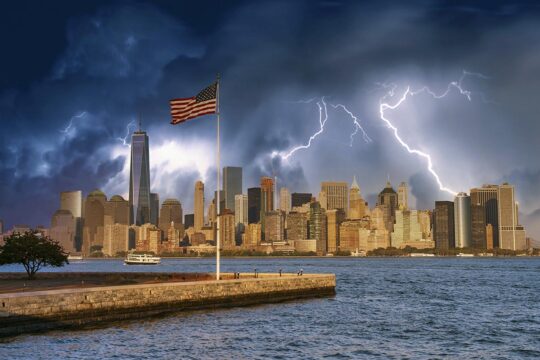The UN's top court on Friday said Israel must prevent genocide in its war with Hamas and allow aid into Gaza, but stopped short of calling for an end to the fighting.
The International Court of Justice also said Israel must facilitate "urgently needed" humanitarian aid to Gaza, which has been under relentless bombardment and siege since the October 7 attack on Israel by Hamas.
Israeli Prime Minister Benjamin Netanyahu rejected the case as "outrageous" while Gaza's Hamas rulers hailed the ICJ ruling, saying it "contributes to isolating Israel and exposing its crimes in Gaza".
Soon after, the Islamist movement released a video showing three Israeli women held hostage in Gaza, two of whom said they were Israeli soldiers.
The United Nations court based in The Hague -- while refraining from ordering an immediate halt to the almost four-month-old Gaza war -- said Israel must do everything to "prevent the commission of all acts within the scope" of the Genocide Convention.
South Africa brought the case against Israel, accusing it of breaching the 1948 UN Genocide Convention, set up after World War II and the Holocaust.
President Cyril Ramaphosa and senior officials erupted in cheers after the ruling, which is legally binding although the court has no enforcement mechanism.
Speaking after the ruling, Netanyahu said the charge "is not only false, it's outrageous, and decent people everywhere should reject it".
Israel "does not need to be lectured on morality," his Defence Minister Yoav Gallant said.
For the Palestinian Authority, the ruling showed that "no state is above the law", and the European Union said it wanted immediate implementation of the court's decision.
Mushtana Musalim, a 56-year-old displaced man from Gaza City, expressed gratitude to South Africa for bringing the case against Israel.
"This in itself is an achievement in our favour but, going back in history, Israel has not recognised international decisions," he told AFP. "As Palestinians, we support the step and we feel proud of it."
But shoppers at Jerusalem's Mahaneh Yehudah Market were dismissive.
Aryeh Schaffer, a student, called the genocide accusation "absolutely ridiculous" because Israelis were "just defending their homeland".
- 'Heavy gunfire' -
Israeli flag carrier El Al said ahead of the ruling that it would scrap direct flights to South Africa following "a significant fall in demand by Israeli travellers".
The war started with the October 7 attack by Hamas that resulted in about 1,140 deaths in Israel, mostly civilians, according to an AFP tally of official Israeli figures.
Militants also seized about 250 hostages and Israel says around 132 of them remain in Gaza, including the bodies of at least 28 dead captives.
Israel has vowed to crush Hamas and launched a military offensive that the health ministry in Hamas-run Gaza says has killed at least 26,083 people, about 70 percent of them women and children.
On the ground, AFPTV images from Gaza City on Friday showed hundreds of Palestinians crowding around a truck delivering aid, after the UN World Food Programme this week warned of increasing risk of famine in Gaza.
Footage from Maghazi refugee camp in Deir al-Balah, central Gaza, showed scores of decomposing bodies amid the rubble.
In Khan Yunis, south Gaza's main city, health ministry spokesman Ashraf al-Qudra said Nasser Hospital had "completely run out of food, anaesthetics and painkillers as a result of the Israeli siege".
Thousands of displaced people faced "starvation" at the facility, along with 150 staff and 350 patients, he said, after Israel's army on Tuesday said troops had "encircled" the city.
The UN humanitarian agency OCHA said the hospital was only functioning "minimally" as it was surrounded by the army and experiencing intense fighting.
Elsewhere in the city, the Palestinian Red Crescent Society said Israeli tanks were targeting Al-Amal hospital which was "under siege with heavy gunfire".
- UN employees fired -
The health ministry on Thursday accused Israeli forces of killing 20 people waiting for aid to be distributed on Gaza City's outskirts.
AFP was unable to verify those claims, and Israel had yet to respond to a request for comment.
It was the second such attack in two days, after the UN said tanks had shelled one of its shelters in Khan Yunis, killing 13 people.
The UN agency for Palestinian refugees, UNRWA, said the Israeli army had ordered people to leave the site by 5:00 pm (1500 GMT) on Friday, although the military denied issuing a specific evacuation request.
The Israeli military is the only force known to operate tanks in Gaza.
UNRWA on Friday said it had sacked "several" employees whom Israel had accused of involvement in the October 7 attack.
The United States in response said it had suspended funding to the agency.
Hamas also reported fierce clashes in the centre and west of Khan Yunis, the hometown of Hamas's Gaza chief Yahya Sinwar, whom Israel declared one of its top targets soon after the war began.
The army said Friday one more soldier had died in Gaza, bringing to at least 220 the overall number killed since Israeli ground operations started in late October.
- Fleeing with 'nothing' -
According to the UN, most of the 1.7 million Palestinians displaced by the war are crowded into Rafah, on the southern border with Egypt.
With fighting intensified around Khan Yunis, more are fleeing.
They piled their belongings into cars, tractors and donkey-drawn carts while many others fled on foot.
"I don't know where I'm heading," said Musa Abu Yussef. "I've taken nothing with me, no blankets, no sheets, no (tent) -- nothing at all."
An AFP journalist in Rafah said fears were growing about Israeli troops reaching Rafah.
US media reported late on Thursday that CIA director William Burns would travel to Europe soon to meet his Israeli and Egyptian counterparts, as well as the Qatari prime minister, in a bid to negotiate another Gaza truce and the release of hostages.


